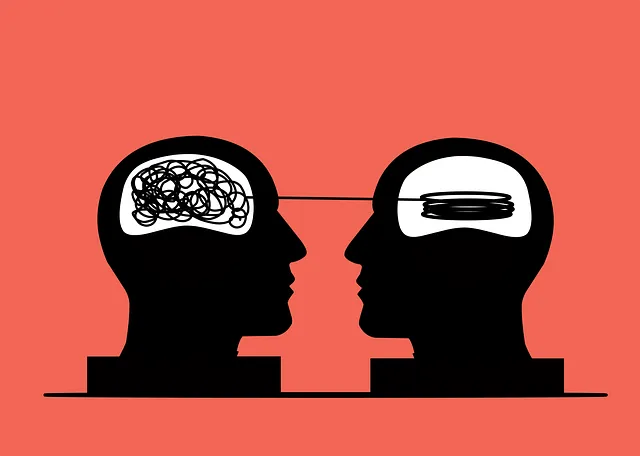The text explores how stigma surrounding mental illness hinders access to care, with Lone Tree Kaiser Permanente (LTPKP) mental health providers taking a pioneering approach to combat this. Through programs like Crisis Intervention and Inner Strength Development, LTPKP professionals foster empathy and reduce fear, breaking down barriers. They prioritize burnout prevention, cultural sensitivity, and community engagement, offering tailored support and educating the public to reduce stigma. LTPKP's holistic strategy integrates mental health into primary care, emphasizing self-care and open conversations, ultimately empowering individuals to manage their psychological wellness alongside physical health.
Mental illness stigma remains a significant barrier to individuals seeking help. This article explores comprehensive efforts to reduce this stigma, focusing on strategies employed by organizations like Lone Tree Kaiser Permanente. We delve into understanding the barriers that prevent people from reaching out, emphasizing the crucial role of healthcare providers in providing non-judgmental care. Additionally, we highlight successful initiatives such as Lone Tree Kaiser Permanente’s mental health support programs and community engagement tactics designed to break down stereotypes through education.
- Understanding Stigma: Barriers to Seeking Help
- The Role of Healthcare Providers in Reducing Stigma
- Lone Tree Kaiser Permanente's Approach to Mental Health Support
- Community Engagement: Breaking Down Stereotypes
- Educational Initiatives: Empowering Individuals and Families
Understanding Stigma: Barriers to Seeking Help

Stigma surrounding mental illness remains a significant barrier to many individuals seeking help and support. The fear of judgment or discrimination often keeps people from reaching out to Lone Tree Kaiser Permanente mental health providers, despite their need for care. This societal stigma can stem from misconceptions and a lack of understanding about various mental health conditions, leading to negative perceptions and assumptions. Many struggle with the idea that weakness or personal failure causes mental illness, when in reality, it’s a complex interplay of genetic, biological, environmental, and psychological factors.
When individuals do not perceive their struggles as legitimate, they may avoid professional help, opting instead for self-reliance or alternative remedies. This can be especially detrimental during crises, where prompt intervention is crucial. Burnout prevention strategies for healthcare providers, including Crisis Intervention Guidance and Inner Strength Development programs, play a vital role in breaking down these barriers by equipping professionals with the skills to navigate such sensitive situations effectively. By fostering an environment of compassion and empathy, these initiatives encourage both patients and providers to prioritize mental well-being without fear or stigma.
The Role of Healthcare Providers in Reducing Stigma

Lone Tree Kaiser Permanente mental health providers play a pivotal role in reducing stigma surrounding mental illness. They are on the front lines, interacting directly with individuals seeking help. Through their actions and words, these professionals can significantly impact how patients perceive themselves and their conditions. Mental health providers have the unique opportunity to foster an environment of understanding and compassion by demonstrating emotional intelligence. This involves active listening, empathy, and validating patients’ feelings, which can help alleviate the fear and shame often associated with mental illness.
Furthermore, Lone Tree Kaiser Permanente’s commitment to burnout prevention among its staff ensures that healthcare providers remain empathetic and effective in their practice. Burnout is a common issue in high-stress professions like mental healthcare, but it can be mitigated through supportive work environments and resources. Equally important is cultural sensitivity in mental healthcare practice. Recognizing and respecting the diverse cultural backgrounds of patients allows providers to offer tailored care that considers unique beliefs, values, and expressions of mental health issues, thereby enhancing patient trust and satisfaction.
Lone Tree Kaiser Permanente's Approach to Mental Health Support

Lone Tree Kaiser Permanente has pioneered an innovative approach to mental health support, recognizing that addressing stigma requires more than traditional therapy. They focus on a holistic strategy, integrating mental health providers into primary care settings and promoting self-care practices tailored to individual needs. By fostering open conversations about mental well-being, they aim to reduce the stigma associated with seeking help.
The organization emphasizes the importance of burnout prevention and inner strength development, encouraging employees and community members to prioritize their psychological wellness alongside physical health. This comprehensive approach not only treats symptoms but also empowers individuals to navigate life’s challenges with resilience and self-awareness.
Community Engagement: Breaking Down Stereotypes

Community engagement is a powerful tool in the battle against mental illness stigma. By fostering open conversations and sharing personal stories, individuals can help break down stereotypes associated with mental health struggles. Lone Tree Kaiser Permanente mental health providers have been at the forefront of these efforts, organizing community events and workshops to promote self-awareness exercises and burnout prevention strategies. These initiatives not only educate but also humanize the experience of mental illness, challenging societal perceptions and fostering a culture of empathy and support.
Through public talks, panel discussions, and peer support groups, community members gain insights into various mental health conditions, including depression prevention techniques. By demystifying these issues, they become less intimidating and more manageable. The involvement of local healthcare providers adds credibility to these conversations, encouraging honest dialogues that can significantly reduce stigma over time.
Educational Initiatives: Empowering Individuals and Families

Educational initiatives play a pivotal role in empowering individuals and families affected by mental health issues. Lone Tree Kaiser Permanente mental health providers are at the forefront of this effort, offering comprehensive programs designed to enhance mental health awareness and foster understanding. These initiatives not only educate but also provide practical tools for managing conditions like depression and burnout prevention, thereby reducing the stigma associated with seeking help.
By organizing workshops, seminars, and support groups, these providers create safe spaces where people can learn about various mental health disorders, their symptoms, and available treatment options. Equipping individuals with this knowledge empowers them to recognize signs of distress in themselves or loved ones, encouraging early intervention. This proactive approach can significantly improve outcomes and quality of life, as early detection and support are crucial in managing mental health effectively.
Mental illness stigma reduction is a multifaceted approach that involves understanding barriers to seeking help, empowering healthcare providers, engaging communities, and implementing educational initiatives. Lone Tree Kaiser Permanente’s holistic support system, for instance, showcases the impact of collaborative efforts between mental health providers and communities in breaking down stereotypes. By fostering an inclusive environment, these strategies not only encourage individuals to seek aid but also promote overall well-being within society.






